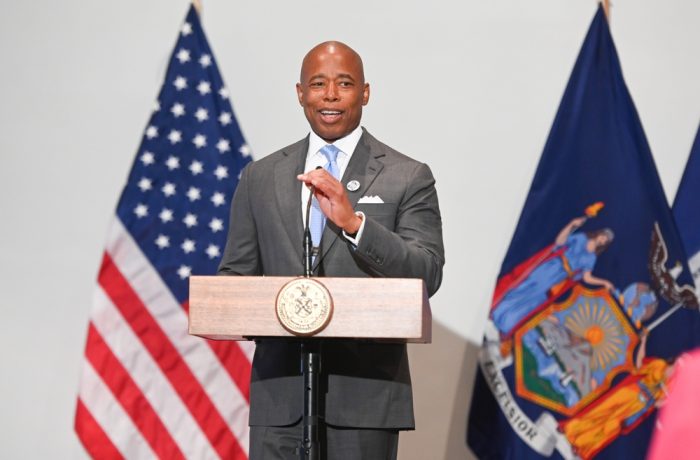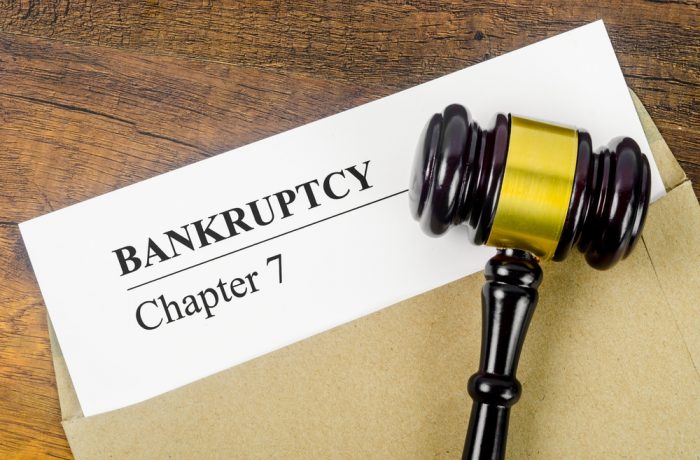By Esther Claudette Gittens
Bankruptcy is a beacon of hope for homeowners facing foreclosure. In New York State, both Chapter 7 and Chapter 13 bankruptcies offer a path to financial stability. While some attorneys have traditionally recommended Chapter 13 for its potential to generate more income through extended legal representation, in many cases, Chapter 7 can be a more effective means of saving your home from foreclosure if you own one property. This analysis examines the benefits of Chapter 7 bankruptcy over Chapter 13 in preventing foreclosure, offering a ray of hope in a challenging situation.
An article in The New York Times explored bias in bankruptcy, revealing that Black individuals are approximately twice as likely as their white counterparts to end up in the more burdensome and expensive type of consumer bankruptcy while attempting to manage their debts, according to a recent study. This bias, which is a reflection of broader societal inequalities, has a profound impact on the lives of these individuals and underscores the need for a fair and equitable legal system.
The study found that this disparity persisted even after adjusting for factors such as income, homeownership, assets, and education. The findings underscore the urgent need for legal and financial professionals to address and rectify these disparities. Lawyers were disproportionately directing Black individuals towards a bankruptcy process that was less advantageous financially, potentially influenced by biases, whether conscious or unconscious. This urgency highlights the importance of the issue and the need for immediate action.
Understanding Chapter 7 and Chapter 13 Bankruptcy
Chapter 7 Bankruptcy Chapter 7 is what most people think of when they imagine “bankruptcy.” Often called a “liquidation bankruptcy,” Chapter 7 sells nonexempt property to pay creditors. One of the critical features of this chapter is:
- Debts can be Discharged: Most unsecured debts, like credit card debt and medical bills, are discharged, releasing the debtor from the responsibility of having to repay them.
- Automatic Stay: Filing for Chapter 7 triggers an automatic stay, halting foreclosure proceedings and relieving homeowners temporarily.
- Exemptions: New York State offers specific exemptions that allow homeowners to protect equity in their primary residence.
Chapter 13 Bankruptcy Chapter 13 bankruptcy is described as a “wage earner’s plan” where one gets into a repayment plan to pay off debts between three to five years. Key features include:
- Debt Repayment Plan: The debtor proposes a repayment plan, which declares how they will pay the creditors over 3 to 5 years.
- Automatic Stay: When filing for Chapter 13, it results in an automatic stay on foreclosure.
- Mortgage Arrears: A provision by which homeowners can catch up on the missed mortgage payments through the payment plan.
Why Chapter 7 May Be Better for Saving Your Home
Immediate Debt Relief: Chapter 7 bankruptcy offers immediate relief from unsecured debts. By discharging these debts, homeowners can redirect their financial resources toward their mortgage. This immediate relief is particularly beneficial for homeowners struggling with overwhelming debt and needing a fresh start to manage their mortgage payments effectively.
More Accessible and Quicker: Chapter 7 bankruptcy is mainly faster than Chapter 13. Its average length usually takes three to six months, whereas a Chapter 13 repayment plan usually takes three to five years to complete. For people just about to be foreclosed on, the speed may be pivotal in helping them resolve their financial problems and move on with their lives more quickly.
Homestead Exemptions and Protections: Among the most liberal in the country, New York State’s homestead exemptions can shield a substantial portion of equity in a principal residence in Chapter 7 bankruptcy. Homeowners in New York City, Long Island, and certain other counties can now exempt as much as $165,550 of their home equity during bankruptcy, compared to a previous limit of $150,000. The amount is now $82,775 for other counties compared to the earlier limit of $75,000. These exemptions can save a home from forced sale, thus making Chapter 7 a possible route for debtors with significant home equity.
Automatic Stay and Negotiation Leverage: The automatic stay under Chapter 7 immediately stays any foreclosure action, allowing homeowners time and space to negotiate with their lender. One such arrangement is the loan modification or other arrangements with the mortgage lender. The fear of losing the house in the bankruptcy sale can also motivate the lenders to arrive at more favorable terms.
Avoiding the Pitfalls of Chapter 13
Lengthy and Complex Process: Chapter 13 bankruptcy involves developing and sticking to a payment plan, which may burden a homeowner already grappling with other financially related challenges. The longer-term commitment can subject a debtor to additional attorney fees and uncertainty. Failing to meet the plan’s requirements can lead to an immediate dismissal and recommencement of the foreclosure action.
More Costs and Legal Fees: A Chapter 13 case is often more costly and leads to increased legal fees because of the plan’s lengthy nature and the complexity involved in the repayment plan. This financial burden can stress a homeowner’s resources, making it much harder to keep up with payments. In contrast, Chapter 7’s faster resolution usually renders overall expenses less.
Many Chapter 13 plans fail since homeowners cannot maintain the strict payment schedule for three to five years. If the homeowner encounters difficulties with his plan, he can revert directly to foreclosure without having received any reduction of his debts. Chapter 7 is less risky and more assured of its help because it is completed faster, and its requirements are relatively limited.
Counterarguments and Considerations
Situations Favoring Chapter 13: Even though Chapter 7 has these compelling strengths, it is not an answer that perfectly suits all people. For instance, when a homeowner has too much nondischargeable debt in the form of tax liens or wants to save nonexempt property, Chapter 13 is a better solution. Chapter 13 bankruptcy can assist a homeowner with mortgage arrears but is at risk of losing their home.
Both Chapter 7 and Chapter 13 bankruptcies can have a significant impact on a credit score, potentially making it more difficult to secure future loans or credit. However, Chapter 7 remains on a credit report for ten years versus seven years in Chapter 13. Homeowners must weigh this long-term impact against the immediate benefits of each bankruptcy type, considering how it may affect their ability to borrow in the future.
Conclusion
Chapter 7 bankruptcy is a beacon of hope for many New York State homeowners facing foreclosure. With immediate debt relief, a more straightforward process, and the robust protections of exemptions, Chapter 7 offers the tools necessary to save their homes and achieve financial stability. While there are benefits to Chapter 13 in a few cases, the more significant advantages of Chapter 7 make it the better remedy for foreclosure homeowners seeking to recover a firm grip on their financial future. As always, a competent bankruptcy attorney can advise the best action to take in the homeowner’s situation, providing further reassurance and hope.
Guidance
Bankruptcy is not the end, it’s a new beginning. Give yourself the opportunity of a fresh start. Contact the Bankruptcy Law Firm of Figeroux & Associates today. Call 855-768-8845 or visit www.askthelawyer.us to book a consultation. The lawyer you hire does make a difference!





